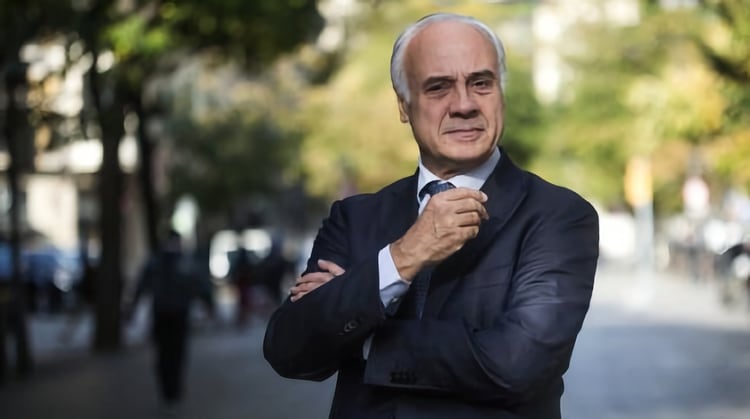Luis Ayllón
Juan Antonio March Pujol, who has chaired the Onuart Foundation for more than 12 years, will be the new ambassador to India, replacing José María Ridao, The Diplomat has learned from reliable sources.
The government has asked the Indian authorities for their approval to appoint Juan Antonio March as ambassador, after Ridao, as The Objective reported last December, asked Foreign Minister José Manuel Albares to leave the post in New Delhi, to which he had been appointed in July 2021.
Juan Antonio March was, from his position as permanent representative of Spain to the United Nations in Geneva, the main promoter of the construction of the Dome of the Spanish painter Miquel Barceló in Room XX of the UN Palais des Nations in that Swiss city, later renamed “Human Rights Room”.
As ambassador to the UN institutions in Geneva since 2004, March offered – with the backing of the then Minister of Foreign Affairs, Miguel Ángel Moratinos – to the UN authorities that Spain would take charge of the renovation of the aforementioned room, now dedicated to Human Rights. The state would bear 30 per cent of the cost of the work and the rest would be private contributions.
After the offer was accepted, the Spanish government budgeted 16.6 million euros for the commission to the painter Miquel Barceló, although in the end the cost was more than 20 million euros. The construction of the dome was surrounded by controversy, among other reasons because 500,000 euros were earmarked for it from the Development Aid Fund (FAD), something the government tried to justify by pointing out that the work was aimed at promoting human rights and multilateralism.
In 2017, the president of the Court of Auditors at the time, Ramón Álvarez de Miranda, denounced in the Congress of Deputies irregularities in the State’s contribution to the dome, in the financial years from 2007 to 2011, indicating that “the planned contribution of five million euros in 2008 was finally raised to 11.5 million due to the increase in the cost and the failure of private entities to meet the financing forecasts” and that the State had to assume a much higher percentage of the cost, given the lack of private contributions.
The Barceló Dome was inaugurated on 18 November 2008, almost a year behind schedule, in the presence of King Juan Carlos and Queen Sofía, Prime Minister José Luis Rodríguez Zapatero, UN Secretary General Ban Ki-Moon, and the then Turkish Prime Minister Recep Tayip Erdogan, with whom the Spanish Prime Minister was promoting the Alliance of Civilisations.
Juan Antonio March was present at the event as vice-president of the Onuart Foundation, a post he combined with that of Spanish ambassador to Russia, a post to which he was appointed in December 2007. With the arrival of the PP in government in 2011, March was dismissed as ambassador to Moscow and, after taking leave of absence from his diplomatic career, has since devoted himself to the Fundación Onuart, of which he is the President.
The Onuart Foundation, a non-profit organisation, based in Barcelona, was created in April 2007 with the aim of promoting the presence of Spanish art in international organisations, starting with Barceló’s performance in Geneva. On its website, practically the only activities reported are concerts, including an annual “Concert for Human Rights”, which takes place in a hall decorated by Barceló.
The 65-year-old future ambassador to India joined the diplomatic service in 1987 and has also been director general of the Institute for Ibero-American Cooperation, as well as having been posted to the Spanish embassies in Rome, London and Mexico, among other posts. London and Mexico, among other posts.






